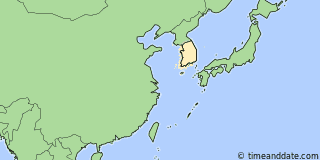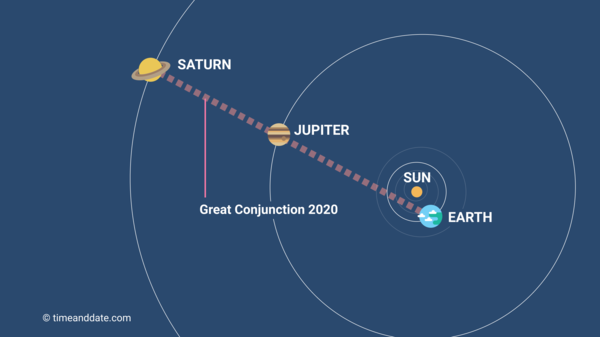9 hours, 31 minutes
Mon, Jun 24 at 7:45 pm – Tue, Jun 25 at 5:16 am
Visible night of Jun 24 – Jun 25, 2024
| Mercury: | Until Mon 8:38 pm |
|---|---|
| Venus: | Until Mon 8:09 pm |
| Mars: | From Tue 2:08 am |
| Jupiter: | From Tue 3:31 am |
| Saturn: | From Mon 11:53 pm |
| Uranus: | From Tue 2:49 am |
| Neptune: | From Tue 12:17 am |

Recurrent Nova Due to Erupt
Sometime in the next few months, T Coronae Borealis—also known as T CrB or the Blaze Star—is expected to appear briefly in the constellation Corona Borealis as a ‘new’ star. Show Corona Borealis in the Night Sky Map below, or read more about the Blaze Star.
Our Interactive Night Sky Map simulates the sky above Injung-ni. The Moon and planets have been enlarged slightly for clarity. On mobile devices, tap to steer the map by pointing your device at the sky. Need some help?
Currently showing previous night. For planet visibility in the coming night, please check again after 12 noon.
Tonight's Sky in Injung-ni, Jun 24 – Jun 25, 2024 (7 planets visible)
Mercury rise and set in Injung-ni
Fairly close to the Sun. Visible only after sunset.
Mercury is just 11 degrees from the Sun in the sky, so it is difficult to see.
Mon, Jun 24 ↓8:38 pm
Time:
Altitude: °
Direction: °
Venus rise and set in Injung-ni
Fairly close to the Sun. Visible only after sunset.
Venus is just 5 degrees from the Sun in the sky, so it is difficult to see. Venus is visible by day, but may be hard to find.
Mon, Jun 24 ↓8:09 pm
Time:
Altitude: °
Direction: °
Mars rise and set in Injung-ni
View before sunrise.
Mars can best be seen in the hours just before sunrise. Visibility deteriorates as the sky gets brighter.
Tue, Jun 25 ↑2:08 am
Time:
Altitude: °
Direction: °
Jupiter rise and set in Injung-ni
View just before sunrise.
Jupiter is close to the Sun and can only be seen shortly before sunrise. Try finding a good, unobstructed view of the horizon.
Tue, Jun 25 ↑3:31 am
Time:
Altitude: °
Direction: °
Saturn rise and set in Injung-ni
View in the early morning.
Saturn can be seen for more than 5 hours during the late night/early morning and until sunrise.
Mon, Jun 24 ↑11:53 pm
Time:
Altitude: °
Direction: °
Uranus rise and set in Injung-ni
View before sunrise. Bring binoculars.
Uranus can best be seen in the hours just before sunrise. Visibility deteriorates as the sky gets brighter. You may need binoculars.
Tue, Jun 25 ↑2:49 am
Time:
Altitude: °
Direction: °
Neptune rise and set in Injung-ni
View in the early morning. Use binoculars.
Neptune can be seen for more than 4 hours during the late night/early morning and until sunrise. Very faint, use binoculars.
Tue, Jun 25 ↑12:17 am
Time:
Altitude: °
Direction: °
Planets Visible in Injung-ni
| Planetrise/Planetset, Tue, Jun 25, 2024 | ||||
|---|---|---|---|---|
| Planet | Rise | Set | Meridian | Comment |
| Mercury | Mon 6:01 am | Mon 8:38 pm | Mon 1:20 pm | Slightly difficult to see |
| Venus | Mon 5:39 am | Mon 8:09 pm | Mon 12:54 pm | Slightly difficult to see |
| Mars | Tue 2:08 am | Tue 3:35 pm | Tue 8:52 am | Average visibility |
| Jupiter | Tue 3:31 am | Tue 5:38 pm | Tue 10:34 am | Average visibility |
| Saturn | Mon 11:53 pm | Tue 11:23 am | Tue 5:38 am | Great visibility |
| Uranus | Tue 2:49 am | Tue 4:43 pm | Tue 9:46 am | Difficult to see |
| Neptune | Tue 12:17 am | Tue 12:14 pm | Tue 6:16 am | Difficult to see |












